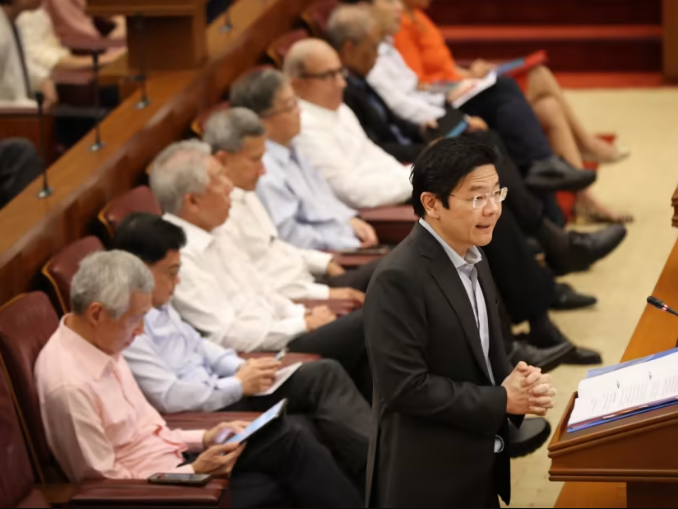Lawrence Wong discusses key lessons for better pandemic management
During a parliamentary debate on the White Paper reviewing Singapore’s response to the Covid-19 pandemic, Deputy Prime Minister and Minister for Finance, Lawrence Wong, shared three crucial lessons for the country to prepare for future crises.
Wong began by acknowledging Singapore’s relative success in navigating the pandemic. He noted that, unlike many nations, Singapore’s healthcare system, though under strain, never faltered. Its case fatality rate was among the lowest globally, and its vaccination rate one of the highest. The government spent prudently, spending S$72.3 billion instead of the S$100 billion originally budgeted, which helped prevent widespread unemployment and supported individuals and businesses. Wong highlighted that Singapore’s rapid economic recovery was facilitated by maintaining essential services and preserving its reputation as a reliable hub, even as other countries shut down.
He thanked frontline workers and expressed deep gratitude for their dedication, underscoring that the unity of Singapore’s people was pivotal in overcoming the challenges.
Reflecting on the government’s decision-making, Wong admitted that, while many actions were necessary, not every choice was perfect. He praised the resilience of the public, acknowledging the inconvenience and frustrations caused by some policies. Nonetheless, he affirmed that there would never be a “perfect response” in such a complex and unpredictable crisis. The focus, he stressed, should be on learning, improving, and doing better.
Wong then outlined three key lessons for Singapore’s future pandemic preparedness.
Lesson 1: Strengthen Healthcare Resilience
Wong emphasised the need to fortify Singapore’s public health system. The healthcare sector faced immense pressure during the pandemic, but through collective effort, it was protected from collapse. To enhance resilience, the government plans to improve primary care through Healthier SG, strengthen ties with the private sector, and develop local vaccine production capabilities. Additionally, a new public health centre will be established to build greater expertise in managing health crises.
Lesson 2: Strategic Forward Planning
Wong pointed out that pandemic planning should go beyond the experiences of SARS, as Covid-19 proved far more complex and long-lasting. While preparation is crucial, there must also be a balance between preparedness and the flexibility to adapt to unforeseen challenges. Wong proposed establishing a forward-planning team to anticipate risks and design adaptable crisis responses.
Lesson 3: Cultivating National Resilience
The pandemic exposed Singapore’s vulnerability, particularly in securing critical supplies. Wong underscored the importance of strengthening supply chains, stockpiling, and enhancing infrastructure resilience, with multi-use facilities to support emergency needs. He highlighted the role of financial reserves and the private sector in bolstering the nation’s resilience. Ultimately, Wong stated, the strength of Singapore’s resilience lies with its people.
In closing, Wong reaffirmed that the goal of the White Paper was not to judge past actions but to learn from them. The true test of Singapore’s response will be judged by history, based on the lessons learned and the nation’s preparedness for future challenges.








